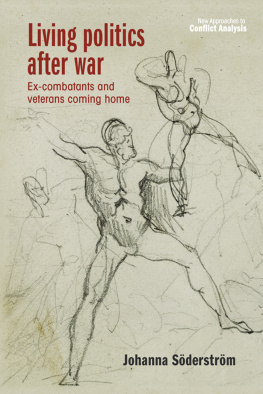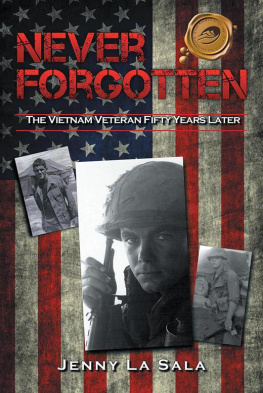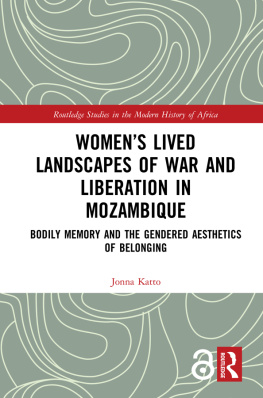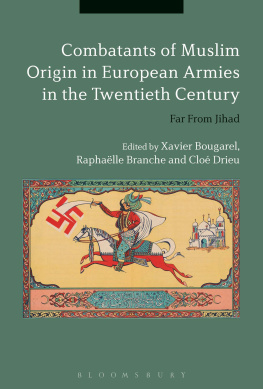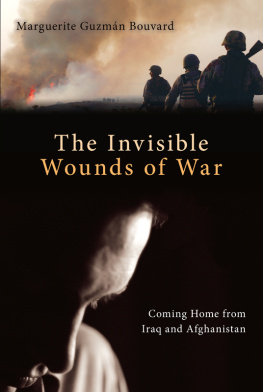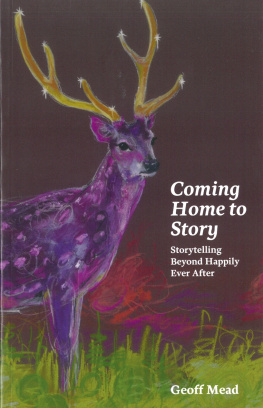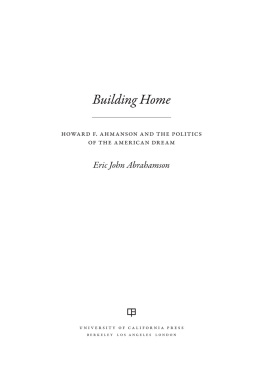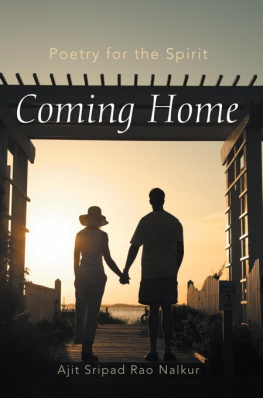LIVING POLITICS AFTER WAR
New Approaches to Conflict Analysis
Series editors: Peter Lawler (School of Social Sciences, University of Manchester United Kingdom) and Emmanuel-Pierre Guittet (Centre for Conflict, Liberty and Security, CCLS, Paris France)
Until recently, the study of conflict and conflict resolution remained comparatively immune to broad developments in social and political theory. When the changing nature and locus of large-scale conflict in the post-Cold War era is also taken into account, the case for a reconsideration of the fundamentals of conflict analysis and conflict resolution becomes all the more stark.
New Approaches to Conflict Analysis promotes the development of new theoretical insights and their application to concrete cases of large-scale conflict, broadly defined. The series intends not to ignore established approaches to conflict analysis and conflict resolution, but to contribute to the reconstruction of the field through a dialogue between orthodoxy and its contemporary critics. Equally, the series reflects the contemporary porosity of intellectual borderlines rather than simply perpetuating rigid boundaries around the study of conflict and peace. New Approaches to Conflict Analysis seeks to uphold the normative commitment of the field's founders yet also recognises that the moral impulse to research is properly part of its subject matter. To these ends, the series is comprised of the highest quality work of scholars drawn from throughout the international academic community, and from a wide range of disciplines within the social sciences.
PUBLISHED
Christine Agius
Neutrality, sovereignty and identity: the social construction of Swedish neutrality
Tim Aistrope
Conspiracy theory and American foreign policy: American foreign policy and the politics of legitimacy
Eref Aksu
The United Nations, intra-state peacekeeping and normative change
Michelle Bentley
Syria and the chemical weapons taboo: exploiting the forbidden
M. Anne Brown
Human rights and the borders of suffering: the promotion of human rights in international politics
Anthony Burke and Matt McDonald (eds)
Critical security in the Asia-Pacific
Ilan Danjoux
Political cartoons and the Israeli-Palestinian conflict
Lorraine Elliott and Graeme Cheeseman (eds)
Forces for good: cosmopolitan militaries in the twenty-first century
Clara Eroukhmanoff
The securitisation of Islam: covert racism and affect in the United States post-9/11
Greg Fry and Tarcisius Kabutaulaka (eds)
Intervention and state-building in the Pacific: the legitimacy of cooperative intervention
Naomi Head
Justifying violence: communicative ethics and the use of force in Kosovo
Charlotte Heath-Kelly
Death and security: memory and mortality at the bombsite
Richard Jackson
Writing the war on terrorism: language, politics and counter-terrorism
Tami Amanda Jacoby and Brent Sasley (eds)
Redefining security in the Middle East
Matt Killingsworth, Matthew Sussex and Jan Pakulski (eds)
Violence and the state
Jan Koehler and Christoph Zrcher (eds)
Potentials of disorder
Matthias Leese and Stef Wittendorp (eds)
Security/Mobility: politics and movement
David Bruce MacDonald
Balkan holocausts? Serbian and Croatian victim-centred propaganda and the war in Yugoslavia
Adrian Millar
Socio-ideological fantasy and the Northern Ireland conflict: the other side
Jennifer Milliken
The social construction of the Korean War
Ami Pedahzur
The Israeli response to Jewish extremism and violence: defending democracy
Maria Stern
Naming insecurity constructing identity: Mayan-women in Guatemala on the eve of peace
Virginia Tilley
The one state solution: a breakthrough for peace in the IsraeliPalestinian deadlock
Living politics after war
Ex-combatants and veterans coming home
JOHANNA SDERSTRM
Manchester University Press
Copyright Johanna Sderstrm 2020
The right of Johanna Sderstrm to be identified as the author of this work has been asserted by her in accordance with the Copyright, Designs and Patents Act 1988.
Published by Manchester University Press
Altrincham Street, Manchester M1 7JA
www.manchesteruniversitypress.co.uk
British Library Cataloguing-in-Publication Data
A catalogue record for this book is available from the British Library
ISBN978 1526 1448 9 8hardback
First published 2020
The publisher has no responsibility for the persistence or accuracy of URLs for any external or third-party internet websites referred to in this book, and does not guarantee that any content on such websites is, or will remain, accurate or appropriate.
Front cover:
Thodore Gricault, Studies of nude men in combat, 181214
(The J. Paul Getty Museum/Getty Open Content)
Typeset
by New Best-set Typesetters Ltd
This work was supported by the European Institutes for Advanced Study Fellowship Programme and the European Commission (Marie-Sklodowska-Curie Actions, COFUND Program, FP7), at the Netherlands Institute for Advanced Study in the Humanities and Social Sciences (NIAS), the Ryoichi Sasakawa Young Leaders Fellowship Fund Program at Uppsala University, and the Varieties of Peace research program (Riksbankens Jubileumsfond M160297:1). Data collection was made possible through stipends from Borbos Erik Hansson, Atmerstiftelsen, and Sederholms, and the Skytte Foundation generously funded a manuscript workshop.
I am very grateful for the many people who have discussed and commented on my work in its various stages: Abbey Steele, Anna Ida Rock, Anna Jarstad, Ben Oppenheim, Enzo Nussio, Gyda Mars Sindre, Ingrid Samset, Jan Willem Duyvendak, Jaremey McMullin, Jason Klocek, Jenny Jansson, Joanna Britton, John Spall, Julia Jennstl, Katrin Uba, Kim Wale, Kristin Ljungkvist, Lalli Metsola, Lennart Bolliger, Li Bennich-Bjrkman, Maartje Abbenhuis, Malin kebo, Markus Holdo, Matthew Hoye, Moa Mrtensson, Nikkie Wiegink, Nina Wiln, Preeti Chopra, Ralph Sprenkels, Remco Raben, Roxane Farmanfarmaian, Sandra Hkansson, Steven Wilkinson, Teije Hidde Donker and Zoe Marks. It is wonderful to be part of such a generous and incisive research community; thank you for sharing and thinking with me.
The work benefited greatly from discussions within the Folke Bernadotte Academy Research Working Group, at the Peace and Conflict Studies in Anthropology meeting in Amsterdam, and at NIAS, also in Amsterdam. In particular, I want to stress how important my time at NIAS, the cohort and support staff, were to the completion of this manuscript. I miss you all!
I also want to thank Enzo Nussio, Stefan Quiroga Fajardo, Maria Camila Perez Bonila, Usdin Leonardo Martnez Orellanos, Natalia Gutirrez Trujillo, Arlene B. Tickner, Patricia Bohrquez and Ana Maria Rodriguez Alfonso for their help in Colombia, and to Johannes Shekeni, Sylvia Shimaneni, Dula Tulimevava and Julia Heimo for their help in Namibia. Finally, I am clearly indebted and grateful to all those who were willing to share their life after war with me.
Independently of the path that each one of us decided to follow, or the different actions we took during the militant period, our way of thinking and acting has a trace of the times when we were militants.

